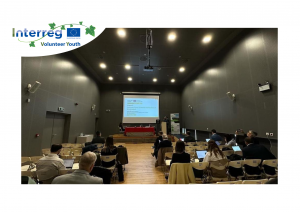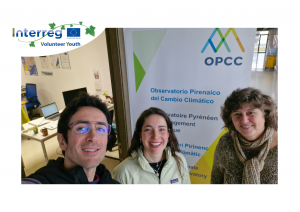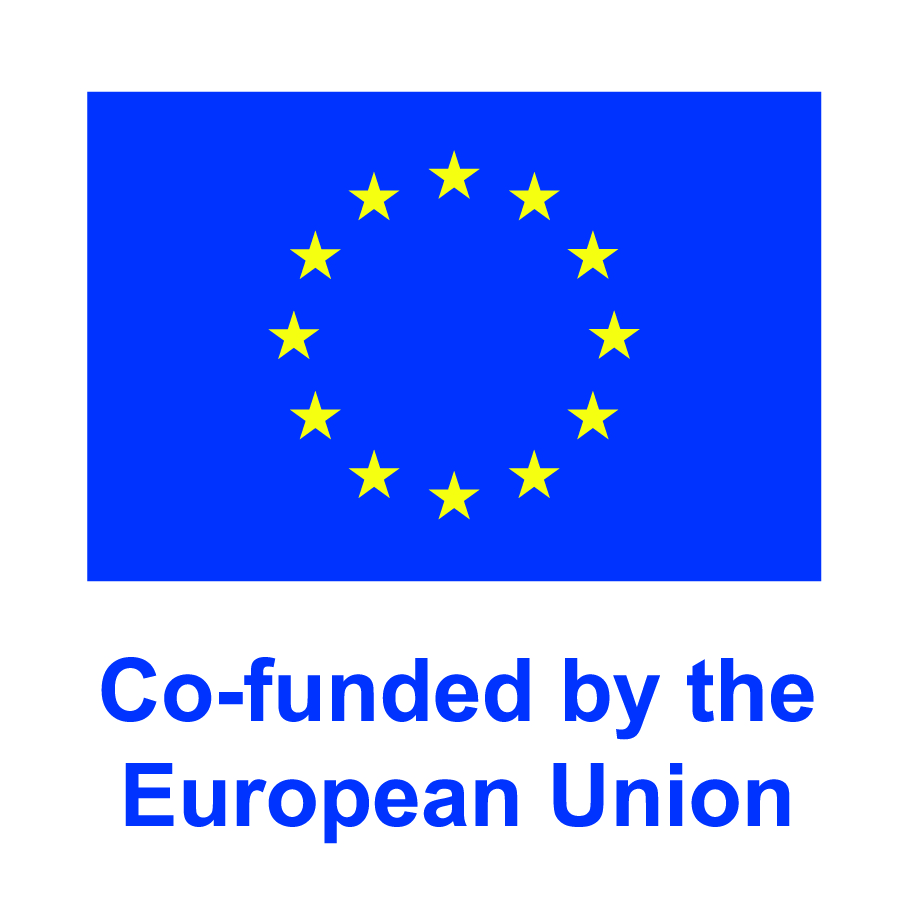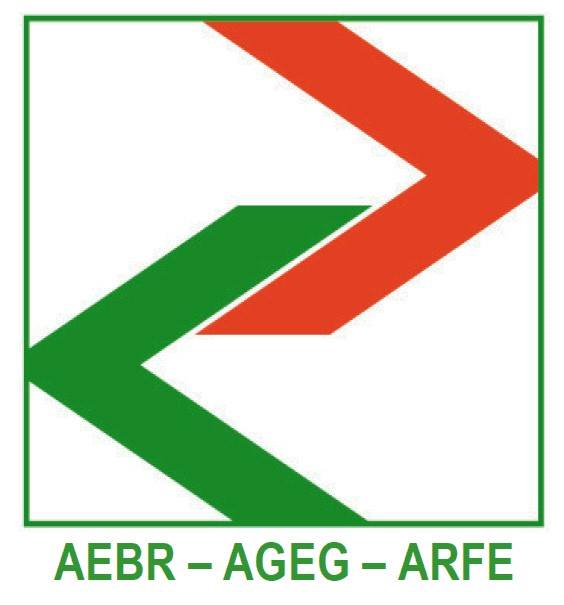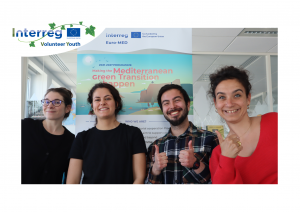
Being an IVY Volunteer for the Interreg Euro-MED programme
Hello everyone! My name is Solène Sanchez, and as part of the IVY Initiative, I am currently volunteering for the Joint Secretariat of the Interreg Euro-MED programme. This is a transnational territorial cooperation programme that aims to make the green transition happen in the Mediterranean by financing impactful projects in the area! Olga (IVY mentor) – Me – Fahrettin (IVY Volunteer) – Céline (IVY mentor) Interreg Euro-MED programme During my first weeks at the JS, I had to understand what the programme was about. The cooperation area includes 69 regions from 14 countries, all located in the northern shore of the Mediterranean Sea: 10 of them are EU countries and 4 are IPA countries (Republic of North Macedonia, Montenegro, Bosnia-Herzegovina, Albania). Organisations coming from these 14 countries can be part of a Euro-MED project, or even be the lead partner! The entire programme, down to the smallest detail, is built to create a lasting change in the region. To do so, four missions have been identified: Strengthening an Innovative Sustainable Economy Protecting, Restoring and Valorising the Natural Environment and Heritage Promoting Green Living Areas Enhancing Sustainable Tourism All the financed projects are part of one of these missions. In addition, there are several types of projects. Thematic projects directly contribute to the programme aim, looking for solutions for a greener and smarter Mediterranean. Then, there are Governance projects, 2 per each mission: Community projects, which focus on transferring and exchanging the results obtained by the thematic projects; and Dialogue projects, which work to improve the governance at the Mediterranean level. I discovered the programme structure, and even if it is pretty complex, I find it relevant because a project does not stand alone: they are all linked to their mission, to other projects part of the same mission and to governance projects. Moreover, the programme is in contact with Mediterranean organisations such as PRIMA or the Ufm. All these connections and links are conceived to create a real change in the region. The Team in Marseille! The Joint Secretariat is one of the programme bodies, but it’s a central one! The JS is in charge of the day-to-day operational administration and is hosted by the French region Provence Alpes Cote d’Azur in Marseille. 24 people work in the JS plus an IT intern, and we are 2 IVYs. The JS is divided into several units: the Communication unit that makes information available, the financial unit that manages money, the resource unit in charge of the relation with the region, the project unit that works with the partners and their project. My volunteering experience so far… As an IVY volunteer, I joined the JS to help with the Post 2027 consultation. The European Commission asked Interreg programmes to conduct a consultation among their stakeholders and citizens to gather feedback for the future of Interreg. Regarding the stakeholder consultation, the MED programme joined forces with five other programmes to have a common survey. Therefore, I attended the different transnational meetings and prepared the input from our part. It’s an ongoing exercise and it’s interesting to see how programmes can work together. The citizen consultation is rather different because we had to work on the target differently. However, I’m happy to be involved in both consultations. On the other hand, I also support the communication unit in their daily work. I made the information available to stakeholders regarding the calls, European news and upcoming events. I wrote several articles and learnt the communication rules of the programmes and for the project. I also attend several meetings organised by the JS for the partners and Monitoring Committees with national authorities. Thanks to the IVY initiative, I have the opportunity to deepen my knowledge on territorial cooperation and to understand how a Joint Secretariat works. It also gives me insights about what I would like to do after this experience. – Solène, IVY Reporter at the Joint Secretariat Interreg Euro – Med Discover more about Interreg Euro-MED Click Here

